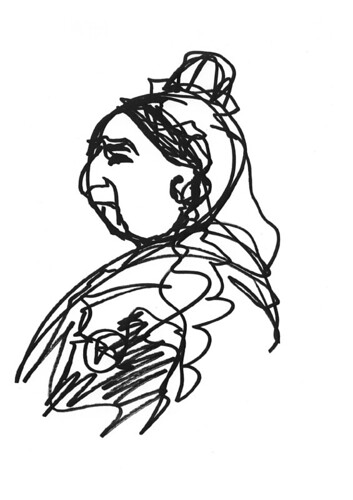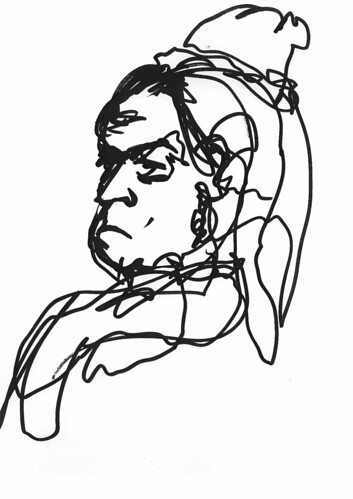I’m currently reading a biography of Bess of Hardwick. I’m not that far through it yet (don’t tell me how it ends!*), but one thing is striking, reading about Tudor England†: how capricious the politics is and how much it’s dependent on patronage and favour. Admittedly, the period I’ve read about so far covers the end of Henry VIII, a cameo by Lady Jane Grey, the reign of Bloody Mary and the dawning of the age of Elizabeth, so with the dynastic politics and the swings between Protestant and Catholic, it is perhaps unusually unstable. But the basic point remains that all power derives from the monarch, who can have people banished, impoverished or executed at will. At the Holbein exhibition, there were little bios of the subjects next to the portraits; it was noticeable how many of them seemed to have ended up under the axe.
It isn’t just that politics and law are unstable because of the whims of the monarch; it also creates an environment where access to the monarch is everything and where the people with access and influence don’t just get a bit of second-hand power: they also potentially get serious serious money. It breeds conspiracies, factions and coups. The stakes are so high and power is so unanswerable. Men, entire families, could be raised up or destroyed in a moment. And there were indeed plots, revolts and conspiracies; armies were raised and marched on London. And it trickles down; the great lord in favour with the monarch had local influence in their own part of the country, and used it to favour lesser lords who in turn favored their own cronies.
It’s rather like the situation in a poor country which has a lot of oil or diamonds but not much else; all possibility of wealth or success gets tied into one thing — how close people can get to the oil. The economy and politics get twisted out of shape, not because the oil company necessarily intends to be exploitative or ruthless but because the gravitational pull of the oil is so disproportionate to any other source of money.
I remember at university, possibly in my finals, there was a question which was something like: ‘Shakespeare’s tragedies are essentially political. Discuss.’ At the time I was annoyed by it because it seemed like a reflection of a certain critical tendency to find politics in everything, and to foreground politics, in its broad sense, at the expense of other kinds of analysis. Now, though, I’m more sympathetic. A play like Julius Caesar, about courtiers conspiring to kill a king, would have had immediate relevance to the original audience. Richard III, Hamlet, Macbeth, King Lear: all revolve around court politics. All operate in the shadow of civil war. Which isn’t to say that they are narrowly ‘political plays’, but the action does take place in a highly political environment.
It makes an interesting problem for anyone staging them. You want a setting which is contemporary enough to be immediate for the audience, but western politics these days just isn’t brutal, unstable or corrupt enough. Some kind of dictatorship seems the obvious choice, but of course that setting brings a load of baggage of its own. Hamlet set in the court of Kim Jong-Il doesn’t seem quite right somehow.
*Really, don’t: I don’t know that much about her and have no idea what’s going to happen next. I haven’t read that Wikipedia article I just linked to for precisely that reason.
†and indeed medieval England, but one thing at a time.


